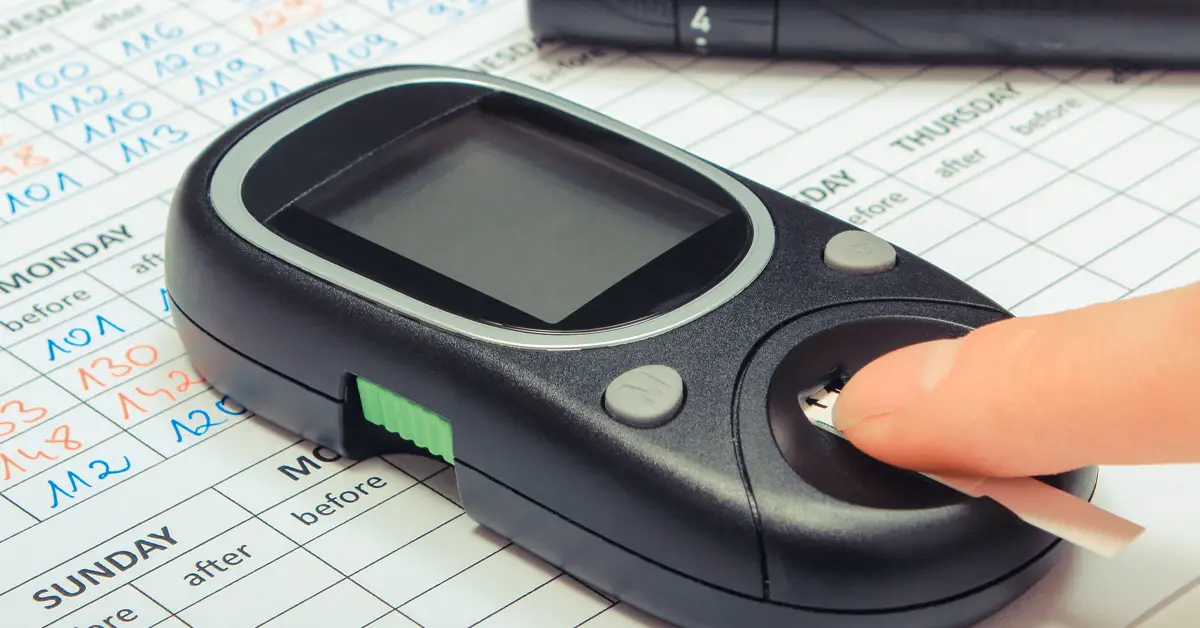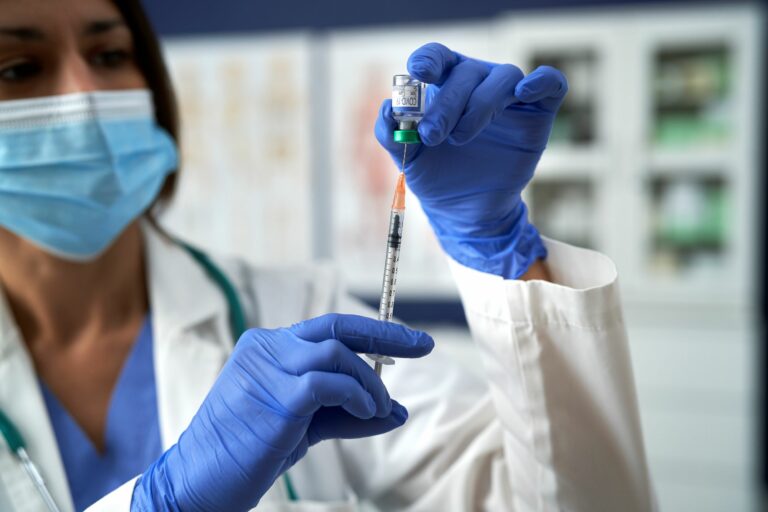NOTE: The content in this article is not intended to be a substitute for professional medical advice, diagnosis, or treatment. Always seek the advice of your physician or other qualified health provider with any questions you may have regarding a medical condition.
The COVID-19 pandemic, caused by the SARS CoV-2 virus, has had a significant impact on individuals with diabetes. Patients with diabetes are at an increased risk of severe illness from COVID-19 and may face unique challenges while the COVID virus is prevalent. Since COVID and diabetes are health conditions that have affected many people around the world, we will explore five ways how the COVID pandemic impacted individuals with diabetes.
Increased Risk of Infection for Patients with Covid and Diabetes
The relationship between diabetes and Covid-19 is bidirectional. This makes patients with a diagnosis of diabetes or diabetes mellitus who have been infected by SARS-CoV-2 to have an increased rate of hospitalization, more severe cases of pneumonia, and higher mortality rates in comparison to individuals who do not have diabetes. Diabetes is a chronic condition that affects the body’s ability to produce or use insulin, a hormone that helps regulate blood sugar levels. Over time, high blood sugar levels, particularly in patients with type 2 diabetes, can damage the blood vessels and nerves, including those associated with the immune system. This damage can make it more difficult for the body to fight off infections and other illnesses, and can increase the risk of serious complications from COVID-19, such as pneumonia and acute respiratory distress syndrome (ARDS). Therefore, patients with diabetes are at a higher risk of getting a COVID-19 infection. It is important for these patients to take certain steps to manage their blood sugar levels, and to protect themselves from the virus, such as by following Centers for Disease Control and Prevention (CDC) guidelines for social distancing and wearing a mask.
Managing Diabetes Becomes More Challenging
The COVID-19 pandemic has caused a shift in how chronic health care is delivered, as the need for social distancing to prevent viral transmission has seen a rapid rise in telehealth services. Those with pre-existing conditions such as diabetes may have an increased risk of contracting COVID-19 or suffering from more severe symptoms. According to the CDC, patients with diabetes are at a higher risk of severe illness from COVID-19 and may require intensive care. This can make it difficult for individuals with diabetes to access healthcare services and to receive the care and medication they need.
Additionally, the increased risk of COVID-19 may cause some patients with diabetes to avoid seeking medical care, which can lead to a worsening of their condition. Furthermore, disruptions to the supply chain and distribution of diabetes medications may make it difficult for some individuals to access the medication they need to manage their blood sugar levels.
Diabetes Potential Complications from COVID-19
Patients with diabetes are at a higher risk of developing complications from COVID-19, such as ARDS, hyperglycemia, or even death. ARDS is a serious lung condition that can occur in patients with COVID-19 and can be life-threatening. It is characterized by fluid buildup in the lungs can make it difficult to breathe. Hyperglycemia, or high blood sugar, can also be a complication of COVID-19 in patients with diabetes. The stress of illness can cause blood sugar levels to rise, and some medications used to treat COVID-19 can also cause hyperglycemia. The elevation in blood sugar can lead to a worsening of diabetes symptoms and increase the risk of serious complications such as diabetic ketoacidosis (DKA) and even coma. Because COVID-19 and diabetes are in a bidirectional relationship, it is important for patients with diabetes to carefully manage their blood sugar levels and seek medical attention if they develop symptoms of COVID-19.
Psychological Impact on Patients with Diabetes
The psychological impact of the COVID-19 pandemic can be significant for individuals with diabetes, including increased stress and anxiety. The uncertainty and fear surrounding the pandemic can cause stress, which may negatively impact an individual’s ability to manage their diabetes. Stress can cause blood sugar levels to rise, which can lead to a worsening of diabetes symptoms and an increased risk of complications.
Additionally, the disruptions to routine care and access to medication caused by the pandemic can cause anxiety and worry for patients with diabetes. High anxiety, especially for prolonged periods, can affect an individual’s mental health and overall wellbeing. It is important for individuals with diabetes to find ways to manage stress and anxiety during challenging times, such as through regular exercise, meditation, and support from friends and family. Seeking support from a healthcare provider or mental health professional may also be beneficial.
Need for Increased Support and Resources for Patients with Diabetes
The COVID-19 pandemic has highlighted the need for increased support and resources for patients with diabetes. As mentioned previously, patients with diabetes are at an increased risk of severe illness from COVID-19 and may face unique challenges during this time. This includes the need for access to healthcare services, medication, and support to manage their diabetes. The disruptions to routine care caused by the pandemic have made it difficult for some individuals with diabetes to receive the care and support they need. This can lead to worsening of their condition and an increased risk of complications.
It is therefore important for healthcare providers (HCPs), policymakers, and other organizations to provide increased support and resources to patients with diabetes during the pandemic. Support may include providing access to telehealth services, increasing the availability of diabetes medications, and offering support for managing stress and anxiety.
Roles of Healthcare Providers
The role of HCPs in the lives of patients with diabetes during the COVID-19 pandemic is critical. Patients with diabetes are at an increased risk of severe illness from COVID-19 and may face unique challenges during this time. Healthcare providers can help manage these challenges in several ways.
Firstly, HCPs can assist patients with diabetes in protecting themselves from COVID-19 by providing educational materials and support on how to prevent infection through social distancing, wearing masks, and other CDC-recommended measures. Additionally, they can provide access to COVID-19 vaccines to help patients protect themselves from the virus.
Secondly, HCPs can help manage the challenges of managing diabetes during the pandemic by offering telehealth services to enable remote care, ensuring access to diabetes medications, and providing support for managing stress and anxiety.
Thirdly, HCPs can help manage any complications that may arise from COVID-19 in patients with diabetes by providing close monitoring and appropriate treatment for complications such as ARDS and hyperglycemia.
Finally, HCPs can advocate for improved access to resources and support for individuals with diabetes during the pandemic. This includes advocating for increased funding for diabetes care, services, medications, and other essential items.
Overall, the importance of HCPs in providing support to individuals with diabetes during the COVID-19 pandemic should not be understated.
DrKumo’s Role for Patients with Diabetes During COVID-19 Pandemic
Remote Patient Monitoring (RPM) is a valuable method of providing necessary care and support to patients with diabetes from HCPs without an in-person visit. RPM is especially important in times of the COVID-19 pandemic, as it reduces risk by avoiding physical contact between patients and providers.
One key component of RPM for diabetes management is the use of a glucose meter, which enables patients to regularly monitor their blood sugar levels at home and securely send the results to their HCPs. The ability to securely send glucose test results allows HCPs to intervene in a more timely manner, if necessary, potentially reducing the need for hospitalizations and improving overall care continuity.
DrKumo’s RPM technology offers an essential resource for individuals with diabetes during the COVID-19 pandemic, allowing them to receive necessary care and support without endangering exposure to the virus. As such, HCPs, policymakers, and other organizations can provide increased access to RPM to virtually guarantee that diabetes patients are receiving adequate care under the current circumstances. In sum, RPM can be a powerful tool for managing diabetes and providing needed assistance, even during times of pandemic.
Takeaways
HCPs are uniquely positioned to support individuals with diabetes during the COVID-19 pandemic. Through provision of education and support on COVID-19 safety, management of diabetes challenges, and close monitoring for complications, healthcare professionals can help ensure that individuals with diabetes remain safe and healthy during this difficult time.
Join the healthcare revolution with DrKumo’s RPM technology solutions and make a difference in improving diabetes care today. Contact us now!
NOTE: The content in this article is not intended to be a substitute for professional medical advice, diagnosis, or treatment. Always seek the advice of your physician or other qualified health provider with any questions you may have regarding a medical condition.








